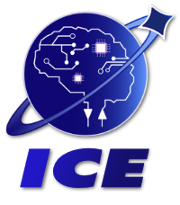Conveners
Session 2: Late Morning
- Dominika Perz (ESA)
Prof.
Joerg Fliege
(University of Southampton)
24/11/2017, 11:20
Optimisation is a key technology for intelligent control, as exemplified by evolutionary and genetic algorithms, machine learning techniques, and training of neural networks. Deterministic global optimisation is concerned with rigorous methods to find globally optimal solutions for such applications as well as mathematically precise error bounds for such solutions. Corresponding solver...
Georg Nührenberg
(fortiss GmbH)
24/11/2017, 11:45
Neural Networks Control Systems
The deployment of Artificial Neural Networks (ANNs) in critical missions poses a number of new verification challenges. In particular, for ANN-enabled perception and control it is important to establish properties about the resilience of ANNs to noisy or even maliciously manipulated sensory input. Furthermore, given interpretability of the inputs and outputs of an ANN, certain safety...
Dr
Juan Félix San-Juan
(Scientific Computing Group (GRUCACI), University of La Rioja)
24/11/2017, 12:10
Genetic and Evolutionary Computation
Artificial Intelligence in general, and machine learning in particular, are the cornerstones of the so-called Industry 4.0. Being aware of the new opportunities provided by current technology and increased computational power, public administrations are fostering this upcoming fourth industrial revolution, in which both the private sector and academia are also taking an active part. The space...
Prof.
Daniel Hennes
(University of Stuttgart)
24/11/2017, 12:35
Intelligent Control for Transportation
Deep learning techniques allow us to scale reinforcement learning to
problems that were previously intractable, i.e. to domains with
high-dimensional state (or observation) spaces and continuous action
spaces. We will give an overview of state-of-the-art deep
reinforcement learning methods, including deep Q-learning, deep
deterministic policy gradients, and asynchronous...

